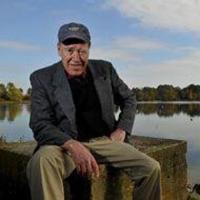Journalism During the Cold War
In this lecture we will discuss how the Cold War affected the journalism profession, and the changes in the field from then and now.
“The Cold War” might be viewed with some nostalgia today, given the relative clarity and serenity that contemporary conflicts seem to lack. But the East-West dispute was seldom viewed benignly at the time. Although outright confrontation was ultimately avoided, the threat of nuclear war had a sobering effect on the global collective psyche. For the American press, the near half-century between World War II and the dissolution of Soviet communism provided a constant stream of news from the two superpowers. Before internet use became commonplace, allowing users instant access to news and updates, audiences depended solely on print and electronic media, which maintained large bureaus in the world’s major capitals. After being expelled from the Soviet Union in 1977, journalist George Krimsky went from a cold war to a hot war, assigned to the Middle East during the Lebanese civil unrest and a spate of violent protests resulting from the Egyptian-Israeli peace accord. Being on the hot seat had its drawbacks, and he will highlight them while illustrating the differences between news coverage then and now.
George A. Krimsky is a journalist and author who spent much of his career working or looking abroad. He covered the Soviet Union during the Cold War before being expelled as a spy, and was assigned to the Middle East during the Lebanese civil war. He later co-founded a journalist training center in Washington D.C and capped his career in community journalism – which he says was his toughest assignment – before retiring in his home state of Connecticut.
ADMISSION $10
FREE WITH DARTMOUTH ID
